
Filter News
Area of Research
- (-) Supercomputing (75)
- Biological Systems (1)
- Biology and Environment (113)
- Biology and Soft Matter (1)
- Clean Energy (130)
- Climate and Environmental Systems (5)
- Computational Biology (2)
- Computational Engineering (2)
- Computer Science (2)
- Electricity and Smart Grid (1)
- Energy Frontier Research Centers (1)
- Functional Materials for Energy (1)
- Fusion and Fission (7)
- Isotopes (6)
- Materials (83)
- Materials for Computing (14)
- Mathematics (1)
- National Security (11)
- Neutron Science (34)
- Nuclear Science and Technology (3)
- Quantum information Science (2)
- Transportation Systems (2)
News Topics
- (-) Biomedical (17)
- (-) Environment (21)
- (-) Exascale Computing (22)
- (-) Microscopy (7)
- (-) Nanotechnology (11)
- (-) Transportation (6)
- 3-D Printing/Advanced Manufacturing (5)
- Advanced Reactors (1)
- Artificial Intelligence (36)
- Big Data (19)
- Bioenergy (9)
- Biology (11)
- Biotechnology (2)
- Buildings (4)
- Chemical Sciences (5)
- Climate Change (17)
- Computer Science (95)
- Coronavirus (14)
- Critical Materials (3)
- Cybersecurity (8)
- Decarbonization (5)
- Energy Storage (8)
- Frontier (28)
- Fusion (1)
- Grid (5)
- High-Performance Computing (38)
- Isotopes (1)
- Machine Learning (14)
- Materials (15)
- Materials Science (16)
- Mathematics (1)
- Molten Salt (1)
- National Security (8)
- Net Zero (1)
- Neutron Science (13)
- Nuclear Energy (4)
- Partnerships (1)
- Physics (7)
- Polymers (2)
- Quantum Computing (19)
- Quantum Science (24)
- Security (5)
- Simulation (14)
- Software (1)
- Space Exploration (3)
- Summit (42)
- Sustainable Energy (10)
Media Contacts

A study led by researchers at ORNL could help make materials design as customizable as point-and-click.
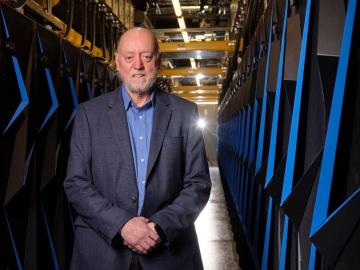
A force within the supercomputing community, Jack Dongarra developed software packages that became standard in the industry, allowing high-performance computers to become increasingly more powerful in recent decades.
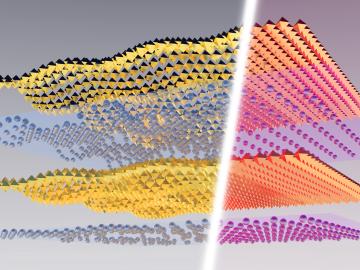
A study by researchers at the ORNL takes a fresh look at what could become the first step toward a new generation of solar batteries.
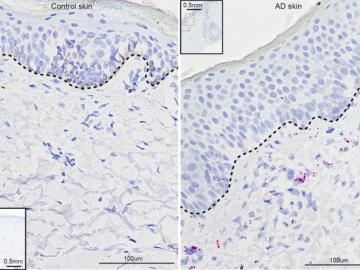
University of Pennsylvania researchers called on computational systems biology expertise at Oak Ridge National Laboratory to analyze large datasets of single-cell RNA sequencing from skin samples afflicted with atopic dermatitis.
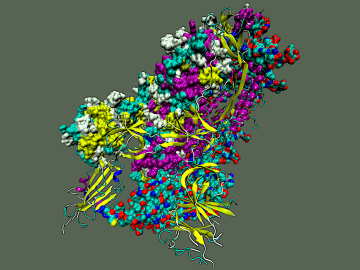
To explore the inner workings of severe acute respiratory syndrome coronavirus 2, or SARS-CoV-2, researchers from ORNL developed a novel technique.

A new version of the Energy Exascale Earth System Model, or E3SM, is two times faster than an earlier version released in 2018.

A world-leading researcher in solid electrolytes and sophisticated electron microscopy methods received Oak Ridge National Laboratory’s top science honor today for her work in developing new materials for batteries. The announcement was made during a livestreamed Director’s Awards event hosted by ORNL Director Thomas Zacharia.

The daily traffic congestion along the streets and interstate lanes of Chattanooga could be headed the way of the horse and buggy with help from ORNL researchers.

An international problem like climate change needs solutions that cross boundaries, both on maps and among disciplines. Oak Ridge National Laboratory computational scientist Deeksha Rastogi embodies that approach.
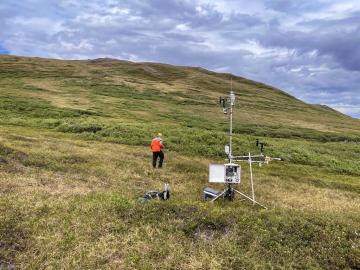
Improved data, models and analyses from ORNL scientists and many other researchers in the latest global climate assessment report provide new levels of certainty about what the future holds for the planet


